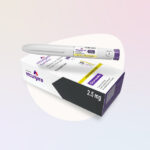By Easy Pharmacy Hub
When a new baby arrives, parents and caregivers are often filled with joy, hope, and a little bit of anxiety—especially when it comes to their baby’s health. One important but often overlooked condition that can affect newborns is low blood sugar, medically known as neonatal hypoglycemia.
So, Can a Newborn Baby Have Low Sugar Levels at Birth?
Yes, absolutely. It is possible—and in some cases, quite common—for a newborn to have low blood sugar levels at birth. Blood sugar, or glucose, is the primary source of energy for the body, especially the brain. If a baby’s glucose levels drop too low, it can be dangerous and requires prompt medical attention.
What Causes Low Blood Sugar in Newborns?
Several factors can contribute to low glucose levels in a newborn, including:
1. Premature Birth
Babies born before 37 weeks may have underdeveloped organs and limited fat stores, making it harder for them to regulate their blood sugar.
2. Babies Born to Diabetic Mothers
If the mother had diabetes during pregnancy, the baby might produce more insulin than normal. After birth, the sudden drop in maternal glucose can lead to hypoglycemia.
3. Low Birth Weight or Small for Gestational Age (SGA)
Smaller babies often have less fat and fewer energy reserves, putting them at risk for low sugar levels.
4. Delayed Feeding
If a baby doesn’t feed soon after birth, their glucose supply may run low. Frequent feeding helps maintain normal sugar levels.
5. Birth Stress or Asphyxia
Complications during labor and delivery that reduce oxygen flow can disrupt a baby’s metabolism, affecting blood sugar regulation.
Signs and Symptoms of Low Blood Sugar in Newborns
Low sugar levels might not always show obvious signs, but in some cases, symptoms may include:
-
Jitteriness or tremors
-
Poor feeding or refusal to eat
-
Weak cry
-
Low body temperature (hypothermia)
-
Bluish or pale skin
-
Seizures (in severe cases)
-
Lethargy or limpness
If you notice any of these signs, it’s crucial to seek medical attention immediately.
How Is Neonatal Hypoglycemia Diagnosed?
Healthcare providers usually check a newborn’s blood sugar levels within the first few hours after birth, especially if the baby is at high risk. A quick heel-prick blood test is often used for diagnosis.
How Is It Treated?
Treatment depends on how low the glucose levels are and how the baby is responding. Options may include:
-
Early and Frequent Feeding: Breast milk or formula can help raise blood sugar.
-
Glucose Gel: A simple, safe gel applied inside the baby’s cheek.
-
Intravenous (IV) Glucose: In more serious cases, a glucose drip may be given in a hospital setting.
Most babies recover quickly with prompt treatment and go on to live healthy lives.
What Parents Should Know
If you are an expecting parent or have a newborn, here’s what you can do:
-
Make sure your baby feeds within the first hour after birth
-
Monitor feedings and wet diapers as signs of good intake
-
Inform your healthcare provider of any maternal health issues, like diabetes
-
Don’t hesitate to ask questions about your baby’s blood sugar screening
Final Thoughts
While neonatal hypoglycemia can sound alarming, the good news is that it’s usually easily managed if caught early. Routine screenings and timely feeding often prevent complications. At Easy Pharmacy Hub, we’re here to support parents and caregivers with trusted health information and baby care essentials. If you have concerns about your baby’s health, always consult your pediatrician.
Need baby supplements or glucose gel?
Visit Easy Pharmacy Hub for newborn essentials delivered to your door.



